2025
LAUREATES
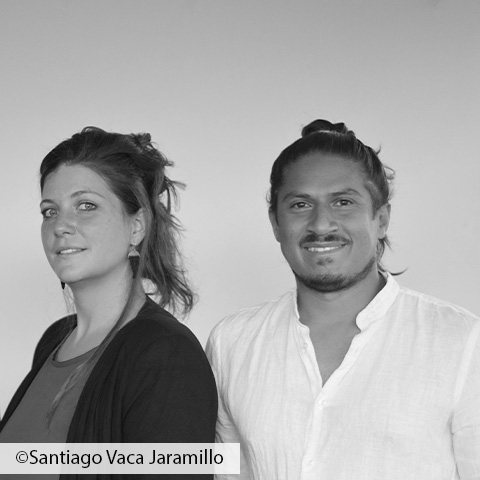
Combette and Moreno Flores founded La Cabina de la Curiosidad in 2019, having met at La Ortiga transdisciplinary cultural center in Quito. Both architects are visiting teachers and lecturers in Latin America, Spain, France, Japan, China, and the United States. They favor teachings linked to their research, such as the workshops “Water and Territory” at the Universidad de Moron and Universidad Nacional de Rosario, Argentina in 2023.
2024
LAUREATES
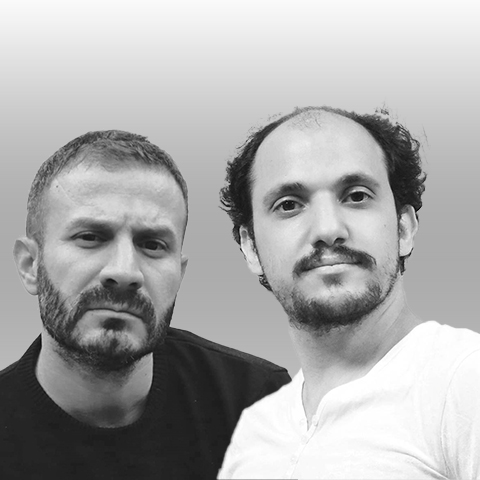
Cofounders of IWLab
Wesam Al Asali (born in Syria) is an architect, educator, and researcher who graduated from Damascus University’s Faculty of Architecture, Syria and Iyas Shahin (born in Damascus, Syria) is an architect, researcher, and artist who holds a master’s degree in architectural/urban design from Damascus University (2013) and a Ph.D. in housing (2017).
2023
LAUREATES
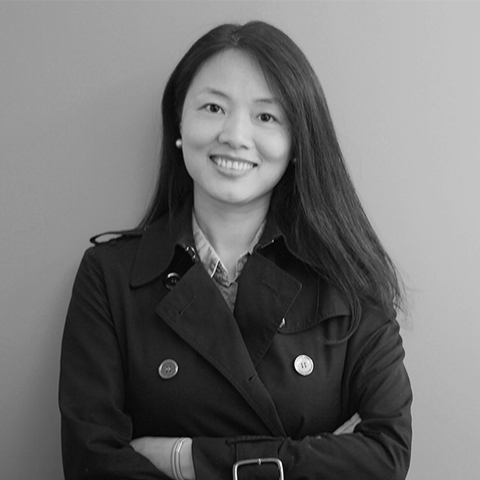
Xu Tiantian (born in Fujian, China) grew up in a Tulou, a large earthen building traditionally used by the Hakka people in the Fujian province in southeastern China.
2025
LAUREATES

Marie Combette and Daniel Moreno Flores
Architects, Ecuador
Combette and Moreno Flores founded La Cabina de la Curiosidad in 2019, having met at La Ortiga transdisciplinary cultural center in Quito. Both architects are visiting teachers and lecturers in Latin America, Spain, France, Japan, China, and the United States. They favor teachings linked to their research, such as the workshops “Water and Territory” at the Universidad de Moron and Universidad Nacional de Rosario, Argentina in 2023.
LA CABINA DE LA CURIOSIDAD
Marie Combette, born in Vesoul, France, graduated in architecture and philosophy from the École Nationale Supérieure d’Architecture de Nancy in 2010. She obtained her license to practice in 2016 with a memorandum on the theme “Arquisanat: The Relationship between Architecture and Craftsmanship.” Her research project “Valparaíso Público” was exhibited at the 2018 Venice Biennale.
Daniel Moreno Flores, an Ecuadorean born in Marseille, France, graduated from the Pontificia Universidad Católica del Ecuador in Quito in 2007. An active member of young architecture collectives promoting handicrafts on material and structural systems, he earned a master’s degree in advanced architectural design from the Universidad de Buenos Aires in 2023. His grants and invitations include: Panamerican Architecture Biennial, Quito, 2012; Latin American Congress of Architecture 2013 and 2016; Ibero-American Biennials of Architecture and Urbanism 2014 and 2019; Climate Change AT, Columbia GSAPP 2019; Curator for Ecuador for the BIAU in Paraguay, 2019; guest participant at the Swiss Award 2018–20.
Combette and Moreno Flores founded La Cabina de la Curiosidad in 2019, having met at La Ortiga transdisciplinary cultural center in Quito. Both architects are visiting teachers and lecturers in Latin America, Spain, France, Japan, China, and the United States. They favor teachings linked to their research, such as the workshops “Water and Territory” at the Universidad de Moron and Universidad Nacional de Rosario, Argentina in 2023.
Publications include: La Cabina de la Curiosidad (2021), Viajes del Cotidiano (2022), and Los Caminos del Agua (2023). La Cabina de la Curiosidad received the National Architectural Design Award, Quito, 2022.
La Cabina de la Curiosidad was a guest participant at the Swiss Award 2024. The Chaki Wasi Artisanal Center was nominated for the OBEL Award 2024, in the works category for the CLIMAS XIII BIAU 2024, won first prize in architecture for the Inclusión Award (IN) 2024, and 2nd Best of the Best for sustainable life at the Seoul Design Award 2024.
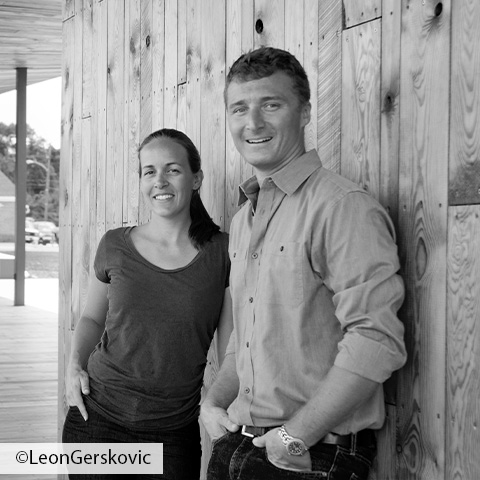
Marie and Keith Zawistowski
Architects, France
Marie and Keith Zawistowski settled in Virginia in 2005, where they taught at Virginia Tech, first as adjunct faculty and then as associate professors of practice (2008–15) and founded “onSITE architecture” in 2005.
In 2016, they relocated onSITE to France. Appointed by the École Nationale Supérieure d’Architecture de Grenoble, they are now tenured faculty and members of the Research Unit Architecture, Environment & Constructives Cultures and Laboratoire CRAterre (2017–ongoing). In 2021, Marie was promoted to full professor.
onSITE
Born in France, Marie Zawistowski graduated from the École nationale supérieure d’architecture Paris-Malaquais in 2004. Born in the United States, Keith Zawistowski graduated from the Virginia Tech College of Architecture and Urban Studies in 2003. Both were involved with the Outreach Studio at Auburn University in Alabama, where they designed and built the Lucy “Carpet” House (2001–02). Marie and Keith Zawistowski settled in Virginia in 2005, where they taught at Virginia Tech, first as adjunct faculty and then as associate professors of practice (2008–15) and founded “onSITE architecture” in 2005.
In 2016, they relocated onSITE to France. Appointed by the École Nationale Supérieure d’Architecture de Grenoble, they are now tenured faculty and members of the Research Unit Architecture, Environment & Constructives Cultures and Laboratoire CRAterre (2017–ongoing). In 2021, Marie was promoted to full professor.
Among their scientific works: “Reality Check: Pedagogy at the Intersection of Practice, Education and Outreach,” Virginia Tech, peer-reviewed journal CIDER, Fall 2013; “ExpLearn” International Conference, INSA Lyon et GAIA, October 2016; “Evolving Vernacular: Unstabilized, Prefabricated Insulated Rammed Earth,” A-ranked review Technology, Architecture + Design, 2020; “Contemporary Neolitic,” contribution to the Biennale Architecture and Landscape, Versailles, 2022.
Awards and grants received by onSITE include: Graham Foundation Grant for Traditional Building Technology Research in Ghana, 2005; National Council of Architectural Registration Boards, NCARB Grand Prize for the Creative Integration of Practice and Education in the Academy, 2011; ACSA Architectural Education Award, Association of Collegiate Schools of Architecture, 2012–13; Young Architects Award, French Minis- try of Culture, 2014.
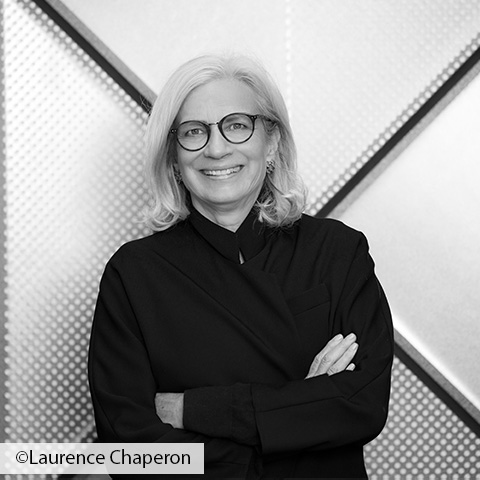
Andrea Gebhard
Urban and landscape planner, Germany
After graduating in geography, sociology, landscape development and landscape architecture, Andrea Gebhard worked in two architectural firms in 1984 before moving to the Department of Urban Planning and Building Regulations of the City of Munich from 1984 to 2000, where, in 1993, she was appointed head of the Department of Green Planning. In 2000, Gebhard took over the management of the newly founded Garden Show in Munich (BUGA 2005). In 2006, she established the landscape architecture practice gebhard-konzepte in Munich, now m.g.k. – mahl-gebhard-konzepte. The firm m.g.k. works on a wide range of scales, from structural planning to object design.
Born in Munich, Andrea Gebhard studied geography and sociology at the University of Marburg (1976–77), then landscape development at the Technical University of Berlin, and landscape architecture at the University of Hanover. After graduating, Gebhard worked in two architectural firms in 1984 before moving to the Department of Urban Planning and Building Regulations of the City of Munich from 1984 to 2000, where, in 1993, she was appointed head of the Department of Green Planning. In 2000, Gebhard took over the management of the newly founded Garden Show in Munich (BUGA 2005). In 2006, she established the landscape architecture practice gebhard-konzepte in Munich, now m.g.k. – mahl-gebhard-konzepte. The firm m.g.k. works on a wide range of scales, from structural planning to object design.
Awards received by Andrea Gebhard include: Order of Merit of the Federal Republic of Germany for her services to landscape and open-space planning and her voluntary work, 2015; Medal “Munich shines” in silver, 2016; City of Munich Architecture Prize, 2021.
Andrea Gebhard sees her work and her involvement in various committees and associations as an opportunity to take stances on issues and topics of the future. Her memberships include: vice president of the Association of German Landscape Architects, 2006–07; president of the Association of German Landscape Architects, 2007–14, as the first woman to hold this office in the history of the AGLA; chairwoman of the advisory board of trustees of the Federal Foundation of Baukultur since 2013; chairwoman of the Bavarian regional group of the German academy for urban and regional planning, 2014–22. She has been president of the Federal Chamber of German Architects since 2021.
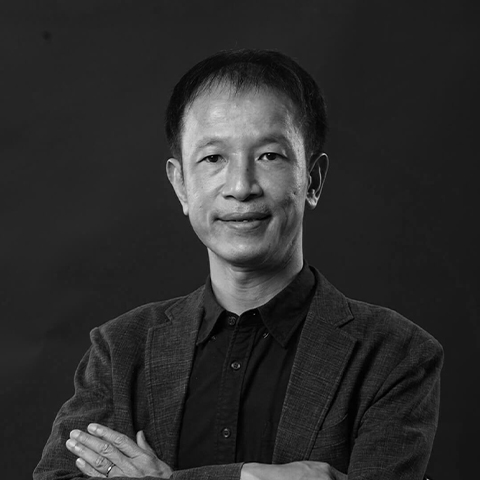
Hoang Thuc Hao
Architect and researcher, Vietnam
Born in Hanoi, Hoang Thuc Hao graduated from the Hanoi University of Civil Engineering in Vietnam (1987–92) and from the Politecnico di Torino in Italy (2000–03). In 2003, he founded the architectural firm 1+1>2, which pursues a practice supporting disadvantaged communities and promoting cultural diversity in the context of the rapid urbanization of Vietnam. Hoang Thuc Hao has been a professor and a lecturer in the Faculty of Architecture and Urban Planning (2003–ongoing) in Hanoi.
1+1>2
Born in Hanoi, Hoang Thuc Hao graduated from the Hanoi University of Civil Engineering in Vietnam (1987–92) and from the Politecnico di Torino in Italy (2000–03). In 2003, he founded the architectural firm 1+1>2, which pursues a practice supporting disadvantaged communities and promoting cultural diversity in the context of the rapid urbanization of Vietnam. Hoang Thuc Hao has been a professor and a lecturer in the Faculty of Architecture and Urban Planning (2003–ongoing) in Hanoi. Among his visits and lectures: The Art Institute of Chicago, National University of Singapore, Institute for Contemporary Art in Berlin, Guangzhou Academy of Fine Arts, Yale University, Cornell University, and Tsinghua University.
Awards received by Hoang Thuc Hao include: UIA Award 1996; World Architecture Festival 2015, winner in the category Civic and Community; Vietnamese architect of the year 2015; Gold Prize, Vietnam Green Architecture 2016; SIA-GETZ Award for Emergent Architecture in Asia 2016; Vassilis Sgoutas Prize for Implemented Architecture Serving the Impoverished 2017; UIA Robert Matthew Prize for Sustainable and Humane Environments 2023; Gold Medal, Arcasia Awards for Architecture 2020, category Public Amenity.
Among Hoang Thuc Hao’s commitments for a more inclusive and sustainable development in Vietnam: executive board member of the Youth Union (1995–2019); executive board member of Vietnam Green Architecture Council (2010–16); vice-president of the Vietnam Association of Architects (2020–ongoing); member of the Anti-Flood Program since 2014, and of the “Schools for Impoverished Children in Rural Areas” program as chief architect (2014–ongoing); Responsible for designing and constructing schools in Vietnam’s northern mountainous area; head of the Private Fund for Community Architecture (2015–ongoing).
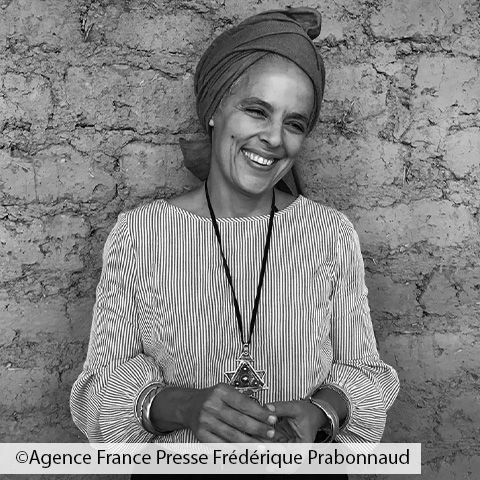
Salima Naji
Anthropologist, architect and artist, Morocco
Born in Rabat to French and Moroccan parents, Salima Naji graduated from the École nationale supérieure d’architecture de Paris – La Villette in 2002. Authorized to practice in the Kingdom of Morocco since 2004, she has built in Fez, Marrakech, and Rabat as part of an innovative, environmentally friendly approach. Called upon to work on major proj ects by the Moroccan government, such as the revitalization of the Ksar d’Assa (2005–11) and of the Citadel of Agadir Oufella (2017–23), she has also taken on small projects with a social dimension.
Born in Rabat to French and Moroccan parents, Salima Naji graduated from the École nationale supérieure d’architecture de Paris – La Villette in 2002. Authorized to practice in the Kingdom of Morocco since 2004, she has built in Fez, Marrakech, and Rabat as part of an innovative, environmentally friendly approach. Called upon to work on major proj ects by the Moroccan government, such as the revitalization of the Ksar d’Assa (2005–11) and of the Citadel of Agadir Oufella (2017–23), she has also taken on small projects with a social dimension.
Naji does not dissociate academic work from that of action. From her initial research on ksours and kasbahs (1993–96), and after a long study trip to Mali (1995), she devoted her PhD to collective granaries from 2000 onward, which she saved from ruin (using her own funds in 2003), also thanks to the Young Architects’ Prize (EDF Foundation, 2004–06), the U.S. Ambassadors Fund for Cultural Preservation (2009–12), the Italian Agency for Development Cooperation (2009–13), and partnership with the Global Heritage Fund (2018–21).
Gradually, research-action programs with universities, NGOs, museums, or bilateral collective actions—such as with the Fondation Jardin Majorelle in Marrakech, for the creation of the Pierre Bergé Museum of Berber Arts (2010), or the project “Preservation of Sacred and Collective Oasis Sites” (2006–13, shortlisted for the Aga Khan Award for Architecture 2013)— have enabled her to reflect on the well-being of populations over the long term, notably with the Kingdom’s Academy for the Conference of the Parties (COP 22) in 2016.
She was included on the Royal Institute of British Architects’ list of “Women in Practice” in 2023 and has received numerous national and international awards, including the prestigious Médaille d’or de l’Académie de France in 2024.
2024
LAUREATES

Prof. Dr. Iyas Shahin & Prof. Dr. Wesam Al Asali, Damskus
Architects, Syria
Cofounders of IWLab
Wesam Al Asali (born in Syria) is an architect, educator, and researcher who graduated from Damascus University’s Faculty of Architecture, Syria and Iyas Shahin (born in Damascus, Syria) is an architect, researcher, and artist who holds a master’s degree in architectural/urban design from Damascus University (2013) and a Ph.D. in housing (2017).
Cofounders of IWLab
Wesam Al Asali (born in Syria) is an architect, educator, and researcher who graduated from Damascus University’s Faculty of Architecture, Syria, before pursuing further studies at the University of Cambridge, United Kingdom. He earned a master’s degree in architecture and urban studies in 2016 and a Ph.D. in architecture in 2021, focusing on design strategies for thin-tile vaults for low-carbon ceiling systems. He served as a postdoctoral researcher at the University of Cambridge and a Fung Global Fellow at the Princeton Institute for International and Regional Studies, New Jersey, from 2021 to 2022. His research, funded by various institutions, focuses on natural materials in Spanish building crafts and scarcity-driven architecture in the Middle East. Engaged in teaching at multiple universities, he is currently the coordinator and professor of design studios and experimental workshops at IE University in Madrid, Spain.
Al Asali has received several prestigious awards, such as the Clare Hall Salje Medal for the best Ph.D. in the arts and humanities, the Royal Institute of British Architects’ (RIBA) President’s Medal for Research, and the Journal of the Society of Architectural Historians’ Founders’ Award.
Iyas Shahin (born in Damascus, Syria) is an architect, researcher, and artist who holds a master’s degree in architectural/urban design from Damascus University (2013) and a Ph.D. in housing (2017). Alongside Wesam Al Asali, he co-established IWLab in 2009, a multidisciplinary entity with a primary focus on cultural and architectural design. His work explores the role of architecture in crises, cultural heritage awareness, and spatial justice. Since 2021, Shahin has delved into experimental documentaries, utilizing them as a tool for criticism and the architectural observation of cities.
Shahin’s teaching activities include serving as an academic lecturer and tutor in the Faculty of Architecture at Damascus University since 2008, as well as numerous academic workshops and cultural participations abroad, including in the UK (Cambridge University), Denmark (Royal Academy of Fine Arts, Copenhagen), Germany (Cottbus University), and Finland. Conferences attended by Iyas Shahin include: Reconstructing Neighborhoods of War – International Conference OIB (2018), Spatial Justice –1st Damascus Conference for Reconstructing Damascus University (2019), Architecture as Craft – Informality for Reconstruction Damascus University (2019), and the 6th Conference Producing Critical Knowledge in the Arab Region ACSS (2023).
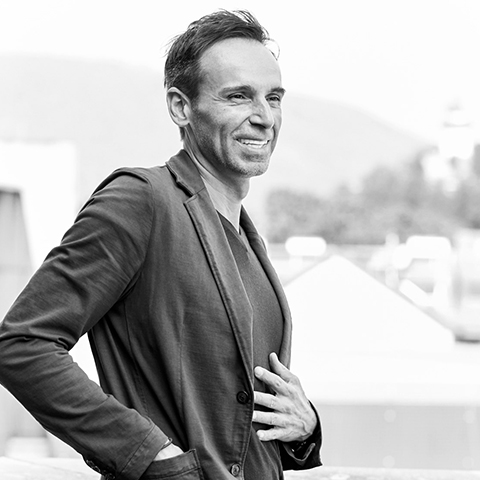
Prof. Klaus K. Loenhart
Architect and Landscape Architect, Austria/Germany
Founder and CEO of Studio terrain: integral designs, Munich, Germany
Director of the Institute of Architecture and Landscape (IA&L), Graz University of Technology, Austria
Founder and director of the laboratory LandLab, Graz University of Technology.
Founder and CEO of Studio terrain: integral designs, Munich, Germany
Director of the Institute of Architecture and Landscape (IA&L), Graz University of Technology, Austria
Founder and director of the laboratory LandLab, Graz University of Technology
Klaus K. Loenhart graduated in 1994 from the Department of Architecture, Munich University of Applied Sciences. After a collaboration with Herzog & de Meuron, he attended the Harvard Graduate School of Design, graduating with degrees in history and theory in 1999, and in landscape architecture in 2000.
Back in Munich, he founded his own practice in 2002. The firm terrain: integral designs focuses on bioclimatic experimental architecture, like the headquarters of Grüne Erde in Austria (2020) or the Austrian Pavilion, breathe.austria, at the Expo 2015 in Milan, which received the UNESCO Design Cities – Grand Award in 2016.
His career as a professor and researcher, which began at the Munich University of Applied Sciences, continued at the Harvard Graduate School of Design, as a teaching fellow in architecture and contemporary landscape theory (1999–01), then at Graz University of Technology, as director of the Institute of Architecture and Landscape (IA&L) (2007–), and as founder and director of LandLab (2009–).
Publications by Klaus K. Loenhart include: Breathe! Investigations into Our Atmospherically Entangled Future (Birkhäuser, 2021) and All of Us, Dasein Is Co-Design (IA&L, Graz, forthcoming 2025).
Awards received by Loenhart include: 2000 Gerald McCue Medal, “for the highest academic achievement of a Master’s thesis,” Harvard University; Balthasar Neumann Prize 2008, with honors; German Structural Engineering Prize 2010; Styrian Architecture Award 2011; Austrian Timber Construction Award 2019, first prize; Austrian National Design Award 2019, first prize; Green Good Design Award 2020; and Austrian Innovation and Sustainability in Architecture 2022, first prize.
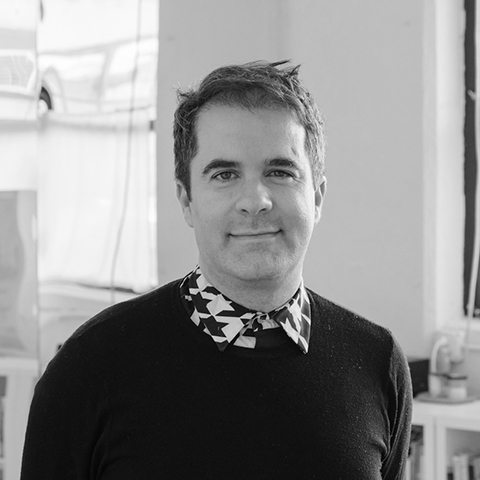
Prof. Dr. Andrés Jaque
Architect, New York, USA/Spain
Founder of the Office for Political Innovation – OFFPOLINN, Madrid, New York
Dean of the Graduate School of Architecture, Planning and Preservation, Columbia University
Founder of the Office for Political Innovation – OFFPOLINN, Madrid, New York
Dean of the Graduate School of Architecture, Planning and Preservation, Columbia University
Andrés Jaque (born in Madrid, Spain) is an architect, writer, and curator. He earned both his master’s degree and his Ph.D. in architecture from the Escuela Técnica Superior de Arquitectura de Madrid (ETSAM), Spain. During his student years, he was an Alfred Toepfer Stiftung’s Tessenow Stipendiat from 1988 to 2000. He founded his own practice Andrés Jaque Arquitectos in 2000, and three years later, in 2003, he established the Office for Political Innovation (OFFPOLINN). The purpose was to introduce a trans-sectional approach, focusing on the intervention of complex composites of relationships within architectural design. OFFPOLINN has evolved into an international practice encompassing design, research, and environmental activism, based in both New York and Madrid.
Andrés Jaque has served as a guest professor at numerous universities, including the universities of Madrid, Valencia, and Alicante in Spain, the Instituto Politecnico in Milan, ETH Zurich, Princeton University, and Cooper Union in New York. His affiliation with the Columbia Graduate School of Architecture, Planning and Preservation (GSAPP) began in 2013. Andrés Jaque assumed the role of director of the Advanced Architectural Design Program in 2018, and later, in 2023, was appointed as dean.
Awards received include the Frederick Kiesler Prize for Architecture and the Arts (2016) and the Silver Lion for Best Research Project at the 14th Biennale of Architecture of Venice (2014). He was co-curator of Manifesta 12 in Palermo, The Planetary Garden (2018), and Chief Curator of the 13th Shanghai Biennale, Bodies of Water (2020).
Publications by Andrés Jaque and OFFPOLINN include: Superpowers of Scale (Columbia University Press, 2020) and More-Than-Human (Idea Books, 2020).
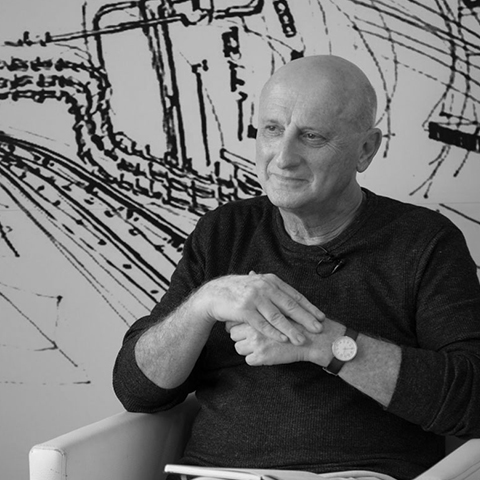
Prof. Ciro Pirondi
Architect, São Paolo, Brazil
Founder of Ciro Pirondi Arquitetos Associados, São Paulo, Brazil Cofounder and former director of Escola da Cidade, São Paulo Director of the Fabrica – Escola de Humanidades “João Filgueiras Lima,” Escola da Cidade, São Paulo.
Founder of Ciro Pirondi Arquitetos Associados, São Paulo, Brazil
Cofounder and former director of Escola da Cidade, São Paulo
Director of the Fabrica – Escola de Humanidades “João FilgueirasLima,” Escola da Cidade, São Paulo
Ciro Pirondi (born in São Paulo, Brazil) is an accomplished architect and urban planner. He earned his degree in architecture and urbanism from the Universidade Braz Cubas in São Paulo, Brazil, and completed his Ph.D. at the Universitat Politècnica de Catalunya in Barcelona, Spain. In 1983, he founded his architectural firm, Ciro Pirondi Arquitetos Associados, which focuses on the revitalization of public spaces and favelas. Noteworthy among his contributions is the masterplan for the Paraisópolis favela, developed in collaboration with Ruben Otero and Anália Amorim.
Pirondi is also committed to preserving the heritage and archives of Brazilian modernist architects. His portfolio includes the renovation of Oscar Niemeyer’s Copan Building, one of the world’s largest residential skyscrapers. Notably, he served as the director of the Casa de Lúcio Costa and as the president of the Vilanova Artigas Foundation. Currently, he serves as executive director of the Oscar Niemeyer Foundation.
Pirondi has also held various academic roles. From 1992 to 1996, he was coordinator of architecture and urbanism at Universidade Braz Cubas in Mogi das Cruzes, Brazil. From 1990 to 1999, he served as a professor in the Faculdade de Arquitetura e Urbanismo do Mackenzie in São Paulo. In 2002, he cofounded the Escuela da Cidade, serving as its director from 2002 to 2019.
Currently, Pirondi leads the Fábrica – Escola de Humanidades “João Filgueiras Lima,” a high school created by Escuela da Cidade, which shares the university’s space and teaching methods. As a guest lecturer at the Università Iuav di Venezia (IUAV), he contributed to the “Architecture as a Human Right” course and collaborated on multiple occasions with WAVE. Pirondi is also the author of A City for Everyone, published by Incipit Editore in 2017.
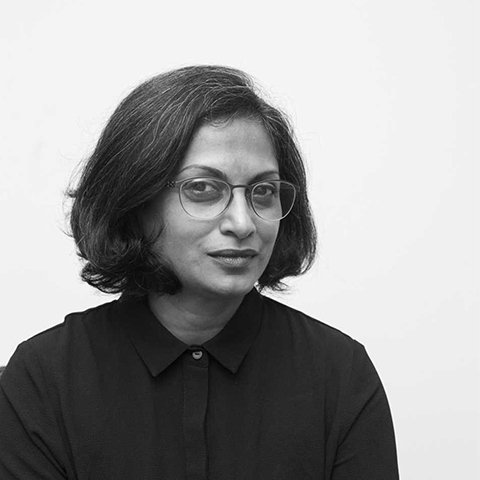
Prof. Marina Tabassum
Architect, Dhaka, Bangladesh
Founder of MTA Architects, Dhaka, Bangladesh
Founder of the Foundation for Architecture and Community Equity (FACE)
Founder of MTA Architects, Dhaka, Bangladesh
Founder of the Foundation for Architecture and Community Equity (FACE)
Marina Tabassum (born in Dhaka) graduated from Bangladesh University of Engineering and Technology in 1994 and founded the architectural firm URBANA in Dhaka, Bangladesh, with Kashef Chowdhury in 1995.
Tabassum established her own practice in 2005, Marina Tabassum Architects. Among her major works are the Museum of Independence, Dhaka (2006), the Bait Ur Rouf Mosque, Dhaka (2012), which has made her known throughout the world, the AR Tower, Dhaka (2015), and the Hamidur Rahman Community Center, Dhaka (2019). She is the founding president of the Foundation for Architecture and Community Equity (FACE).
Since 2005, Marina Tabassum has devoted much of her time to teaching, as a visiting professor at a number of international universities, including the Harvard Graduate School of Design, Delft University of Technology, University of Texas, and University of Toronto, as well as, in Bangladesh, at BRAC University, founded in 2001, where she has taught courses on contemporary South Asian architecture, and at the University of Asia Pacific. From 2015 to 2021 she served as Director of Academic Programs at the Bengal Institute for Architecture, Landscapes and Settlements, Dhaka.
International awards received by Marina Tabassum include: Architect of the Year Award, India (2001); Aga Khan Award for Architecture (2016); Arnold W. Brunner Memorial Prize (2021); The Soane Medal (2021); and Lisbon Triennale Lifetime Achievement Award (2022). She also served as a member of the steering committee of the Aga Khan Award for Architecture.
2023
LAUREATES

Prof. Xu Tiantian
Architect, Tsinghua University, Beijing, China
Xu Tiantian (born in Fujian, China) grew up in a Tulou, a large earthen building traditionally used by the Hakka people in the Fujian province in southeastern China.
Xu Tiantian (born in Fujian, China) grew up in a Tulou, a large earthen building traditionally used by the Hakka people in the Fujian province in southeastern China. A Tulou can have a circular or rectangular floor plan, combining living, worship, storage, work, and communal spaces. Xu notes that her architectural interests were probably born out of her childhood in this beautiful traditional home. She received her bachelor’s degree in architecture from Tsinghua University in Beijing and her master’s degree in urban design from the Harvard Graduate School of Design. After working for OMA in the United States and the Netherlands, she founded the DnA_Design and Architecture studio in Beijing. Her “Architectural Acupuncture” for the social and economic revitalization of rural China was selected by UN Habitat as an inspirational approach concerning the links between urban and rural areas.
Awards received by Xu Tiantian include: the WA China Architecture Award (2006 and 2008), the Architectural League New York’s Young Architects Award (2008), the Design Vanguard Award by the Architectural Record (2009); the Moira Gemmill Prize for Emerging Architecture (2019), and the 14th International Prize for Sustainable Architecture, Gold Medal (2019). In 2022, she received the Swiss Architectural Award for three projects: the reuse of the Shimen Bridge over the Songyin River (2016–17), the Tofu Factory in Caizhai Village (2017–18), and the reuse of the Jinyun Quarries (2021–22). She was also the recipient of the Kunstpreis Berlin in 2023.
Xu Tiantian has taught design as a visiting professor at the Yale School of Architecture and is now a professor at Tsinghua University in Beijing. In 2020, she was appointed as an honorary fellow of the American Institute of Architects.
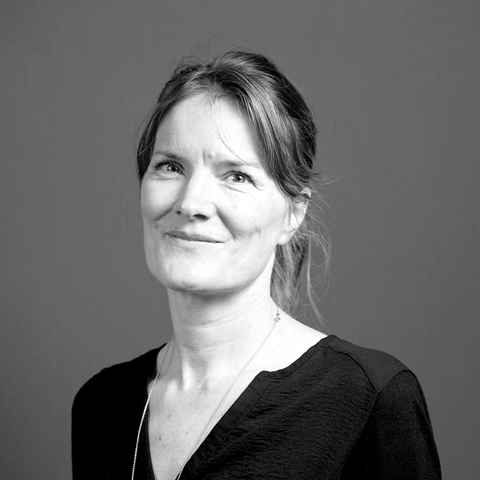
Prof. Dr. Mette Ramsgaard Thomsen
Architect, Royal Danish Academy, Copenhagen, Denmark
Mette Ramsgaard Thomsen explores the intersections between architecture and advanced computational design processes, examining the profound changes that digital technologies bring to the way architecture is thought, designed and built.
Mette Ramsgaard Thomsen explores the intersections between architecture and advanced computational design processes, examining the profound changes that digital technologies bring to the way architecture is thought, designed and built.
In 2005, she founded the Centre for IT and Architecture research group (CITA) at the Royal Academy of Fine Arts, School of Architecture, Design and Conservation where she has piloted a special research focus on the new digital-material relations that digital technologies bring forth. CITA has been central in the forming of an international research field examining the changes to material practice in architecture. This has been led by a series of research investigations developing concepts and technologies as well as strategic projects such as the international Marie Curie ITN network Innochain and the ERC project “Eco-Metabolistic Modelling for Architectural Design” that fosters interdisciplinary sharing and dissemination of expertise and supports new collaborations in the fields of architecture, engineering and fabrication.
In 2022, she was appointed Cret Chair at University of Pennsylvania where she runs research studio on bio-based additive manufacturing for repair. In 2023, she was General Reporter and Head of Science Track for the UIA2023CPH world congress “Sustainable Futures – Leave no one behind” asking how architecture can contribute to the UN SDGs. She is the first architect to be admitted to The Royal Danish Academy of Sciences and Letters. In 2022, she was appointed Fellow of Digital Futures at the University of Tongji, Shanghai.
Academic awards received by Ramsgaard Thomsen include: the Anna Nordlander Prize for a woman architect who has contributed considerably to her field (2011), the EliteForsk Prize for an outstanding researcher under forty-five, demonstrating international excellence (2016), and the ACADIA Innovative Academic Program Award of Excellence awarded to CITA in 2016. Ramsgaard Thomsen was General Reporter and Head of Science Track for the 2023 UIA World Congress of Architects “Sustainable Futures – Leave No One Behind.
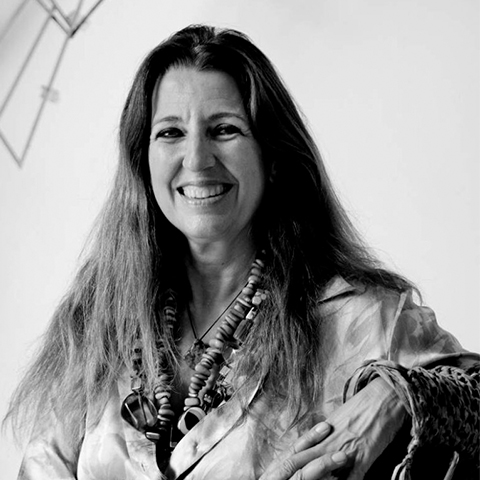
Benedetta Tagliabue
Architect, Barcelona, Spain
Benedetta Tagliabue (born in Milan, Italy) began her studies in 1980 at Columbia University, New York, and graduated from Università Iuav di Venezia in 1989.
Benedetta Tagliabue (born in Milan, Italy) began her studies in 1980 at Columbia University, New York, and graduated from Università Iuav di Venezia in 1989. During her studies, she participated in the Transbuilding and Gandelsonas-Agrest project in New York in 1988. Moving to Barcelona in 1990, she founded EMBT with the Catalan architect Enric Miralles in 1993. Winning competitions for the Santa Caterina Market in 1997 and for the new Parliament of Scotland in 1998 marked a pivotal moment for EMBT, propelling the studio onto the international architecture stage.
After the death of her husband, Enric Miralles, in 2000, Benedetta Tagliabue completed EMBT’s projects.
International awards received by EMBT include: National Architecture Award of Catalonia (2002), RIBA Stirling Prize (2005), Rietveld Prize (2001), Honor Award of the American Society of Landscape Architects for the project Diagonal Mar Park in Barcelona (2005), Golden Lion at the Venice Architecture Biennale (2006), National Architecture Award of Spain (2006), RIBA International Award for Best International Building of 2011, RIBA Charles Jencks Award, and Piranesi Prix de Rome (2020).
Benedetta is Doctor Honoris Causa at Napier University, Edinburgh (2004), and regularly lectures at architecture forums and universities, including Harvard, Columbia, and the Barcelona School of Architecture (ETSAB). Furthermore, she holds the status of being an honorary member of both the Royal Institute of British Architects (RIBA) and the Royal Incorporation of Architects in Scotland (RIAS). She has served as a jury member for the Pritzker Architecture Prize since 2014 and is a member of the Pontificia Accademia dei Virtuosi al Pantheon in Rome as of 2022. Additionally, she has assumed the role of president and founder of the Fundació Enric Miralles in Barcelona.
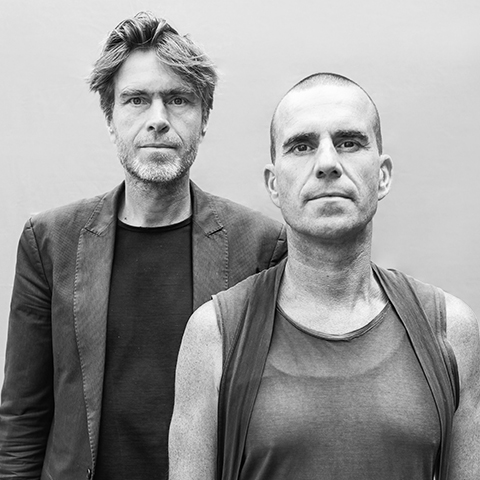
Erik and Ronald Rietveld
Philosopher and Artist, Amsterdam, Netherlands
Erik Rietveld (born in Gorinchem, Netherlands) served as a fellow in philosophy at Harvard University and as a visiting scholar in the Helen Wills Neuroscience Institute at the University of California, Berkeley.
Erik Rietveld (born in Gorinchem, Netherlands) served as a fellow in philosophy at Harvard University and as a visiting scholar in the Helen Wills Neuroscience Institute at the University of California, Berkeley. Today, he holds the position of Socrates Professor at the University of Twente and is the founder and director of the research master’s “Vacant NL” in the Sandberg Institute at the Gerrit Rietveld Art Academy, both in the Netherlands. In 2013, his research project at the University of Amsterdam, “The Landscape of Affordances: Situating the Embodied Mind,” was rewarded with a VIDI-Award from the Netherlands Organization for Scientific Research (NWO). He received an ERC-Starting Grant for his project titled “Skilled Intentionality for ‘Higher’ Embodied Cognition: Joining Forces with a Field of Affordances in Flux” in 2015. Erik Rietveld consistently contributes to various journals, including Philosophical Studies, Phenomenology & The Cognitive Sciences, The Architectural Review, Mind, and Harvard Design Magazine.
Ronald Rietveld (born in Gorinchem, Netherlands) graduated from the Amsterdam Academy of Arts in 2004 and was the winner of the Prix de Rome Gold Medal in 2006. During his time at the Rijksakademie van beeldende kunsten in Amsterdam, he and his brother Erik established the multidisciplinary studio RAAAF (Rietveld Architecture-Art-Affordances) at the intersection of visual art, architecture, and philosophy.
Awards and grants received by RAAAF include: the AR Award in London (2013), the European Prize of Architecture Philippe Rotthier (2017), the Stipendium for Established Artists (2016) by the Mondriaan Fund for Visual Arts, the Radical Award (2013), and the New Talent Award from Metropolis NYC (2015). Additionally, RAAAF curated the Dutch “Vacant NL” contribution to the Venice Architecture Biennale in 2010. Noteworthy installations by RAAAF have been featured at prominent international exhibitions, including the Bienal de São Paulo, the Istanbul Art Biennale, the Garage Museum for Contemporary Art in Moscow, and the Museum Boijmans Van Beuningen in Rotterdam. Erik and Ronald give lectures at art academies, universities, and professional symposia worldwide. Since 2016, both have been members of the Society of Arts of the Royal Netherlands Academy of Arts and Sciences (KNAW).
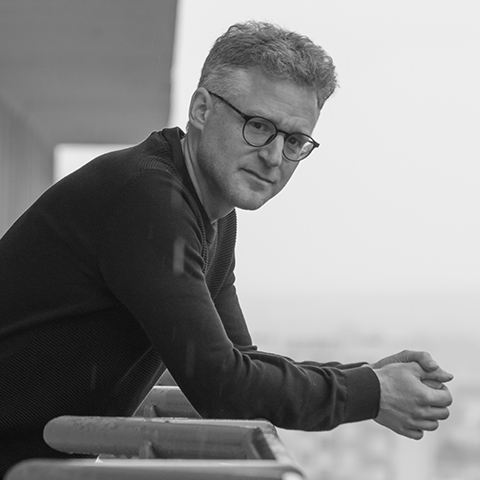
Prof. Simon Teyssou
Architect, Le Rouget, France
Simon Teyssou (born in Paris, France) graduated from the architecture school of the École Nationale Supérieure d’Architecture de Clermont-Ferrand (ENSACF) in 2000.
Simon Teyssou (born in Paris, France) graduated from the architecture school of the École Nationale Supérieure d’Architecture de Clermont-Ferrand (ENSACF) in 2000. Clermont-Ferrand, the historic capital of Auvergne, is situated in a rural region in central France. Here he set up his architectural practice, Atelier du Rouget, in 2001. From 2008 to 2018, Teyssou taught architectural design at ENSACF, a role he held until assuming the position of director. From 2015, he has also contributed his insights as a member of the “Resources” research laboratory.
Atelier du Rouget undertakes projects of all kinds: urban studies, public spaces, housing, facilities, services, and furniture. Teyssou demonstrates his critical ecology approach by participating in numerous forums, conferences, and publications. Some of the most important ones include: the moderation of a round table, “The Potentials for the Archaic Today,” organized by ARENA – Architecture Research European Network, Paris (2018), “Urban Planning Tomorrow,” at the Franco-Chinese Forum in Lyon (2018), and the “New Rurality Association” in Paris (2019).
Awards received by Simon Teyssou in France include: Grand Prix d’Urbanisme 2023, Grand Prix d’architecture of the architecture review D’A for the Center of Mandailles project (2000), the National Prize of Wood Construction in the category “Social Habitat” for a housing project in Limoges (2016), the National Prize EIFFEL for the rehabilitation of the Aurillac rugby stadium (2019), and the National Prize of Urbanisme in Paris (2023). His main exhibitions include: Materials in the Spotlight (group show) in Durban (2014), The Lightness of Being: New Wood Architectures in France in Linz (2014), New Richness, French Pavilion at the Venice International Architecture Biennale (2016), and the Biennale of Architecture and Landscape in Versailles (2022).
Global Award Winners 2007-2022
2022
Okan Bal & Ömer Selçuk Baz, Yalin Architectural Design, Istanbul, Turkey
Gilles Clément, Crozant, France
Anupama Kundoo, Auroville, India
Dorte Mandrup, Copenhagen, Denmark
Martin Rauch, Schlins, Austria
2021
Solano Benitez & Gloria Cabral, Asuncion, Paraguay
José Cubilla, Asuncion, Paraguay
Teresa Moller, Santiago, Chile
Severiano Porto, Manaus, Brazil
Richard Sennett, London, Great Britain
2019
Ersen Gürsel, Istanbul, Turkey
Ammar Khammash, Amman, Jordan
Jorge Lobos, EAHR, Copenhagen, Denmark
Rozana Montiel, Mexico City, Mexico
Werner Sobek, Stuttgart, Germany
2018
Anne Lacaton & Jean-Philippe Vassal, Frédéric Druot, Paris, France
Marta Maccaglia, Associacion Semillas, Pangoa, Peru
Nina Maritz, Windhoek, Namibia
Boonserm Premthada, Bangkok Project Studio, Bangkok, Thailand
Raumlabor, Berlin, Germany
2017
Assemble, London, Great Britain
Paulo David, Funchal, Portugal
Brian MacKay-Lyons & Talbot Sweetapple, Halifax, Canada
Takaharu Tezuka & Yui Tezuka, Tokyo, Japan
Sonam Wangchuk, Leh, Ladakh, India
2016
Gion Antoni Caminada, Vrin, Switzerland
Patrice Doat, Grenoble, France
Kengo Kuma, Tokyo, Japan
Patama Roonrakwit, Case Studio, Bangkok, Thailand
Derek van Heerden & Steve Kinsler, East Coast architects, Durban, South Africa
2015
Marco Casagrande, Helsinki, Finland
Santiago Cirugeda, Sevilla, Spain
Jan Gehl, Copenhagen, Denmark
Juan Roman, Talca University, Chile
Rotor, Brussels, Belgium
2014
Christopher Alexander, Arundel, Great Britain
Tatiana Bilbao, Mexico City, Mexico
Adrian Geuze, West 8, Rotterdam, Netherlands
Bernd Gundermann, Auckland, New Zealand
Martin Rajnis, Prague, Czech Republic
2013
Al Borde, Quito, Ecuador
Ted Flato & David Lake, Lake-Flato, San Antonio, USA
Kevin Low, Kuala Lumpur, Malaysia
Marie Moignot & Xavier De Wil, MDW, Brussels, Belgium
José Paulo Dos Santos, Porto, Portugal
2012
Salma Samar Damluji, Beirut, Lebanon
Anne Feenstra, Kabul, Afghanistan
Andreas Gjertsen & Yashar Hanstad, TYIN Tegnestue, Oslo, Norway
Philippe Madec, Paris, France
Suriya Umpansiriratana, Bangkok, Thailand
2011
Shlomo Aronson, Jerusalem, Israel
Carmen Arrospide Poblete, Patronate Machu Picchu, Cuzco, Peru
Teddy Cruz, San Diego, USA
Anna Heringer, Laufen, Germany
Vatnavinir, Reykjavik, Iceland
2010
Steve Baer, Albuquerque, USA
Phil Harris & Adrian Welke, Troppo, Darwin, Australia
Junya Ishigami, Tokyo, Japan
Giancarlo Mazzanti, Bogota, Columbia
Snohetta, Oslo, Norway
2009
Patrick Bouchain, Paris, France
Thomas Herzog, Munich, Germany
Francis Kéré, Berlin, Germany and Burkina Faso
Bijoy Jain, Studio Mumbai, Mumbai, India
Sami Rintala, Bodø, Norway
2008
Alejandro Aravena, Santiago, Chile
Fabrizio Carola, Naples, Italy
Andrew Freear, Rural Studio, Auburn, USA
Philippe Samyn, Brussels, Belgium
Carin Smuts, Cape Town, South Africa
2007
Stefan Behnisch, Stuttgart, Germany
Balkrishna Doshi, Ahmedabad, India
Françoise-Hélène Jourda, Paris, France
Hermann Kaufmann, Schwarzach, Austria
Wang Shu & Lu Wenyu, Hangzhou, China